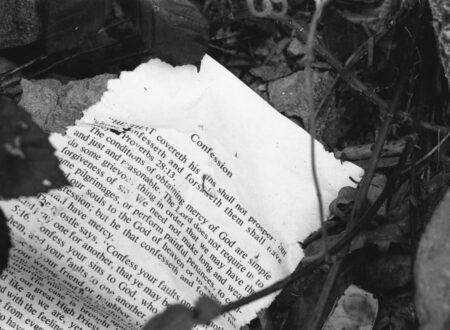Let your eyes look straight ahead, and your eyelids look right before you. Ponder the path of your feet, and let all your ways be established. Do not turn to the right or the left, remove your foot from evil. (Proverbs 4:25-27) NKJV
Like the Character, Christian, standing at the edge of the Valley of The Shadow of Death in John Bunyan’s A Pilgrim’s Progress, we are well served by contemplating where the paths we choose are leading us. Prudence, a companion of wisdom, directs us to ponder the outcomes of our choices by comparing each to its alternatives. Just as a sculptor, at first, carefully examines his block of stone and imagines a finished work in it, while planning several steps ahead of his next hammer blow, we should thoughtfully consider the finished work of our choices. Many roads may look the same but do not lead us to a desirable destination; some paths seem right but only lead to death. Edmund Burke, one of Christianity’s greatest statesman , was right, prudence ranks very high among the virtues.
By carefully considering where our decisions will lead us, before we start, we have the advantage of choosing our destinations and mapping our courses before we become preoccupied with the urgency of the present, so we will have the best opportunities to arrive at optimal ends. Christians often think in terms of abstract ideas, but prudence has real world implications. Before we commit to signing a contract, taking a trip, or building anything, we are best served by having clear expectations of where we intend to be at the end of the day, week, quarter, year, decade, or life. This should not always be overly complicated or lead to paralysis by analysis by perfectionism getting in the way. A sailor sets his sails, a hunter shoots his arrows, and a farmer plants his seed only after carefully considering the destination, target, and seasons, yet each requires action if he is to be called a sailor, hunter, or farmer. Responsible men count the cost before building a tower, fighting a war, or becoming a disciple (Luke 14:27-33). Becoming independently strong and responsible sons, husbands, and fathers does not come about by accident. We become mature men on purpose and not by chance.
Prudence touches on something profoundly personal, for no one else can see through your eyes, walk with your feet, or establish your ways for you. Parents, caregivers, teachers, and others can help, but it is on each of us to individually choose where we are going and how to get there. God gives us choices. If not, there would be no need for scripture, and we would all be like robots. We get to choose our destinations and plan, execute, evaluate, and make course corrections along the way to get there. No one else can be the chief executive of your life or has your personality, experiences, competencies, and domain to work with.
When we pray, read scripture, and practice Kingdom living, we can avoid false starts, wrong turns, and ending up in places of regret. Some expected outcomes we ponder can be easily measured, but many cannot. We can set measurable expectations for ourselves in areas of finance, health, and some relationships, but we can’t control all variables just as no sailor can control the wind, hunter the game, or farmer the seasons. Despite unknowns, we should still set our sails, fill our quivers with arrows, and tend to our fields, for prudent pondering is an ongoing choice to live on purpose with Jesus as our example and guide (1 Peter 2:21).
– Richard Harwood from The Guild




